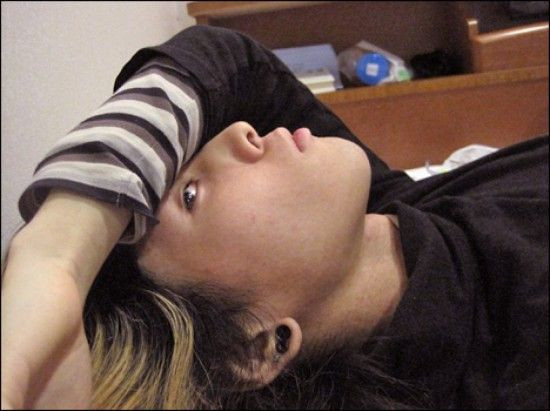Asexuals: A Growing Population?

About 1 percent, or 70 million, of people worldwide belong to what researchers are now calling the 'fourth sexual orientation,' a small but often misunderstood and often overlooked group of 'asexual' men and women who feel absolutely no sexual attraction to other people.
In a book soon to be published in the UK next month, leading academic Professor Anthony Bogaert claims that the sexualization of popular culture has turned many people off sex.
In fact, society has bombarded people with so much sex to the extent that millions do not have physical attraction to others at all, Bogaert suggests.
Bogaert's book, Understanding Asexuality, claims that an increasing number of people consider themselves asexual and argues that these people are "an under-studied population" who sometimes feel excluded from our "very sexualized culture."
Researchers believe that a certain number of asexuals may have always existed but are only now "coming out," joining up and establishing a common identity as society becomes more liberal.
Bogaert, an associate professor at Brock University in Canada, said society can place expectations on both sexual and asexual people.
He defines asexuality as an enduring, complete lack of sexual attraction or a lack of sexual desire which is distinct from celibacy, which refers to sexual abstinence by choice where sexual attraction and desire may still be present.
"There are two forms: people who have some level of sex drive, but don't direct this drive toward others (so they may masturbate); and other people who have no sex drive whatsoever," Bogaert wrote.
In 2004, Bogaert explored the responses of 18,000 people in the United Kingdom to a survey on sexual attraction conducted in 1994.
He found that 1 percent had agreed with the statement: "I have never felt sexually attracted to anyone at all."
In his book, Bogaert analyzes asexuality further, and claims that more and more people now identify themselves as being 'asexual.'
Michael Doré, organizer of the World Pride conference, said in the first non-academic conference to discuss asexuality that took place at Southbank University in London said that asexuality must be "recognized as a valid sexual orientation, rather than a disorder or something people have to hide," according to the Independent on Sunday.
Joshua Hatton, a 23-year-old language student from Birmingham, told the UK-based paper that when he came across the term asexuality three years ago, everything became clear.
"I no longer had to lie to myself. Young men are expected to have some sort of casual sex; it's all around. Now I feel more comfortable," Hatton told the paper.
While some 'asexuals' have no or extremely low sex drives, other may have normal sex drives but are just not attracted to others.
Experts say that while people who belong to the 'fourth sexual orientation' are lacking sexual attraction to others, some may still want to establish close and lasting emotional bonds with other people and may even want to have children by using IVF to avoid having sex, according to the magazine New Scientist.



























